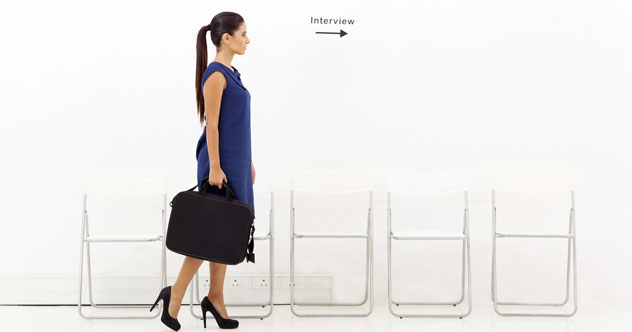
The minute hand of the clock facing you in a bustling office moves one notch closer to the 12. In five minutes, your life will change or remain as it has been since your graduation—a series of touch-and-goes with potential employers. Interviews don't get easier each time you do them. Every employer has something different they like in new job seekers and will ask a number of scrutinizing questions to see if you are what they want. These tips will help you wow the next employer you meet for an interview. It's time to leave the drawing board behind!
1. Dress appropriately

It's always important to think in advance about an interview from all angles. Consider the job and the workplace you're applying for and dress appropriately. Looking nice for an interview shows the employer you're taking the role and the job seriously. Don't worry about over-dressing; it's always better to look too good than to not look good at all—interviews are all about first impressions!
Some employers can tell from looking at you if you would be a good fit for their company or not. Take some time the night before to arrange an outfit that best represents your professional image and get a good night's sleep.
2. Mind your body language

From the moment you walk into the building for an interview, employees and employers alike will be taking note of the way you present yourself, subconsciously or not. Again, first impressions are hugely important. Make sure your posture shows your confidence. This means no slouching or dragging of feet. Also, keep your hands out of your pocket, don't play with your hair, fiddle with your hands, and chew gum. These are comforts we do when we're afraid of something or nervous.
Take a deep breath, relax, and keep your posture neutral. Don't stand and sit too rigid and certainly don't do either like a wet noodle. Make sure your handshakes are nice and firm. Practice with a friend or family member if you have to and remember to smile. Last but not least, when you're sitting across from your future boss, remember to look them in the eye. Take a moment to focus before answering their questions.
3. Anticipate the questions

Think ahead about what questions the employer might want to ask you and plan your answers accordingly. This is a good way to own your confidence in an interview and to keep your head cool and collected when it's game time. Try writing down a list of all the questions you think they will ask and then jot down your responses to each question. To help you come up with possible interview questions, do some research on the company you're applying for. Call an employee and ask them questions about the challenges they face on the job and how they solve them. Once you have your list, read it over and over again.
4. Know your selling points

Having your answers at a bird's-eye view can help you answer the daunting question nearly every employer will ask: what can you bring to the company that no one else can? This, for many, is the hardest part of an interview. The question of, how do I best sell myself? is a challenging one and so it should be—it becomes your chance to prove your worth to the employer. There are many ways you can answer this question, but there are only a handful that will really impress an employer.
Having that list you made in the previous tip gives you the opportunity to come up with the answer to this question while still maintaining the flow of the interview. Don't ramble; keep your selling point short and focused. Consider your education, your professional development, and keep your confidence at your forefront.
5. Don't ramble

So the employer has asked a tough question. It's okay, take your time with it. Rambling on and on will lose the employer's interest and make you seem like you're not really sure what you're talking about. You might lose track of what you're saying as well. Keep your answers short and concise. Don't be afraid to ask for clarification if you're unsure about the question. Also, it's often a good idea to follow up a question by asking them if your answer gives them what they're looking for.
6. Ask questions

Finally, it's important to remember the interview is the employer's time to ask you questions. Let them be in control of questioning while you're in control of your answers. At the very end, don't hesitate to ask them questions of your own, so take some time before the interview to come up with a few. This will show the employer that you care enough about the job to spend time exploring some of your own thoughts, that you're eager to learn more.
Photos: michaeljung, Massonstock, 4774344sean, shironosov/Thinkstock
